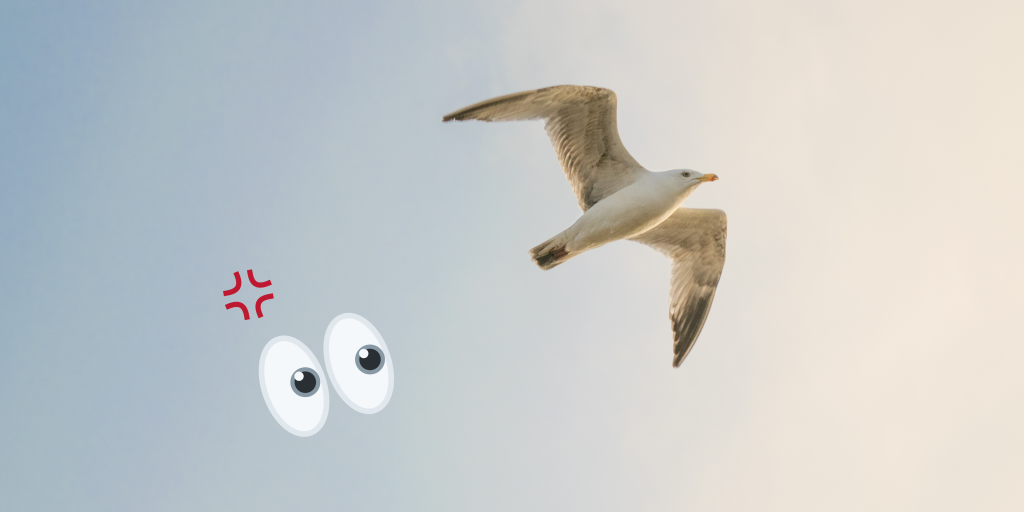
Lessons From a Seagull
Esseen tyyppi: Yksilöessee / 2 esseepistettä.
KIRJALÄHTEET
| KIRJA | KIRJAILIJA |
|---|---|
|
Jonathan Livingston Seagull |
Richard Bach |
Jonathan Livingston Seagull is a novella written by American author Richard Bach in the 1970s. The story is familiar to many. I, too, remember listening to it when I was smaller. In Tiimimestari training I was surprised to hear that this same piece was playing almost an iconic role in the early years of the world’s first team academy, Jyväskylä’s Tiimiakatemia. It is also rated by Johannes Partanen in his book Kirja kirjoista to be one of the core books of team learning (Partanen, 2021). Since I only had obscure and generous memories of seagull Jonathan’s adventures, I decided to refresh my memory and try to find out what I had missed as a kid.
Novella tells a story of a seagull named Jonathan Livingston (in Finnish he is called ‘Joonatan’) who sees fighting over food scraps as un-relevant and focuses his life on mastering what he loves the most – flying. Slowly he learns things no one in his flock has ever been able to do, but the seagull community doesn’t approve of or understand his revolutionary visions. Despite setbacks, Jonathan continues his endless training toward perfectionism, learns new things about seagulls’ life, starts coaching others on their flying journey, and experiences various tremendous breakthroughs.
The novella could be and often is told to children, so it is no surprise that it doesn’t provide hard facts or data about anything relevant to the human world. But when going under the surface and between the lines, the story provides a bouquet of different learnings. It would be unexpected if the reader couldn’t find more learning in the second or even the third reading time.
At this second reading time, it was a pleasure to follow Jonathan’s joy of life and the freedom of choice we all have. Jonathan was blessed to have found a meaning for his life, to do what he loves, fly. Having so specific meaning for my own life perhaps wouldn’t be that ideal, but my biggest goal is to be overall happy and enjoy the journey. Kamil Wojcik commented once that to be happy, a person (I) should be satisfied with themselves in daily basics (2022). Self-criticism sometimes gets the best of me, but even though Jonathan was all the time developing his skills and acknowledged his imperfections, he was still enjoying the journey and the small successes.
Learning new things provides a mental reward over species limits. Jonathan was able to figure out multiple innovations but kept his mind fresh and continuously searched for new things to develop and learn. Learning brings joy in life and for many, it might even be the purpose of their life. Some of us might be eternal students on paper, but for some, it is their life philosophy. Everything being perfect in heaven doesn’t sound too nice if you really think of that. I’m wondering, could the (my) heaven be a flow state of learning?
“Heaven is not a place, and it’s not a time. Heaven is being perfect.”
– Jonathan Livingston Seagull by Richard Bach (1994)
Jonathan achieved great success but to do so he had to make sacrifices like leaving behind the flock and his close-minded family. Seagulls had unspoken and spoken rules created by non-fact-based norms which distorted and made it difficult to take wing strokes in the right direction. The community wanted Jonathan to ‘be normal’ and gave a lot of pressure on Jonathan to do so. The role of a pioneer is not easy and needs a spine. Are we in Flip supporting our mad scientists (who?) to make innovations or are we slowing them down like the flock was slowing down Jonathan?
At Proakatemia and in Flip we try to get our individuals to find their own thing and become specialists in their fields. Even though we have a common consensus that everyone can and should thrive towards their own things, the journey towards it might feel a little lonely, since you might be the only one in the group with that specific interest and knowledge level. Holding pajas to novices might sometimes feel frustrating and non-developing, but Jonathan showed a good example of it. By sharing your own interests and giving time for others to learn about the topic, people around you will slowly be more and more able to support the developing journey. By luck, you will also awaken someone else’s genuine excitement towards the topic and find a fighting pair for learning new things.
The most inspiring takeaways from the novella are related to possibilities and fear. Jonathan Seagull had the power to control his fear of failure. He knew that he can’t succeed at everything on the first try and that miscalculations are possible. But he kept on trying and like often in real life when you really need it, Universum often has some luck to spare. In the critical moments, Jonathan proceeded without giving a thought to failure or death and focused fully on that moment’s goal. If we have the guts to believe so, we have possibilities to implement ourselves in unlimited ways. Fortune often is on the side of the bold, the adventurous, and the free in spirit.
“To fly as fast as thought, to anywhere that is, you must begin by knowing that you have already arrived.“
– Jonathan Livingston Seagull by Richard Bach (1994)
SOURCES:
Bach, R. 1994. Jonathan Livingston Seagull. Gummerus.
Partanen, J. 2021. Kirja kirjoista. Tiimivalmentajan & tiimiyrittäjän parhaat kirjat 2020-21. Vaasa: Tiimiakatemia Global Partus Oy.
Wojcik, K. 2022. Learning contract discussions. 29.04.2022 Tampere: Mökkipaja.



